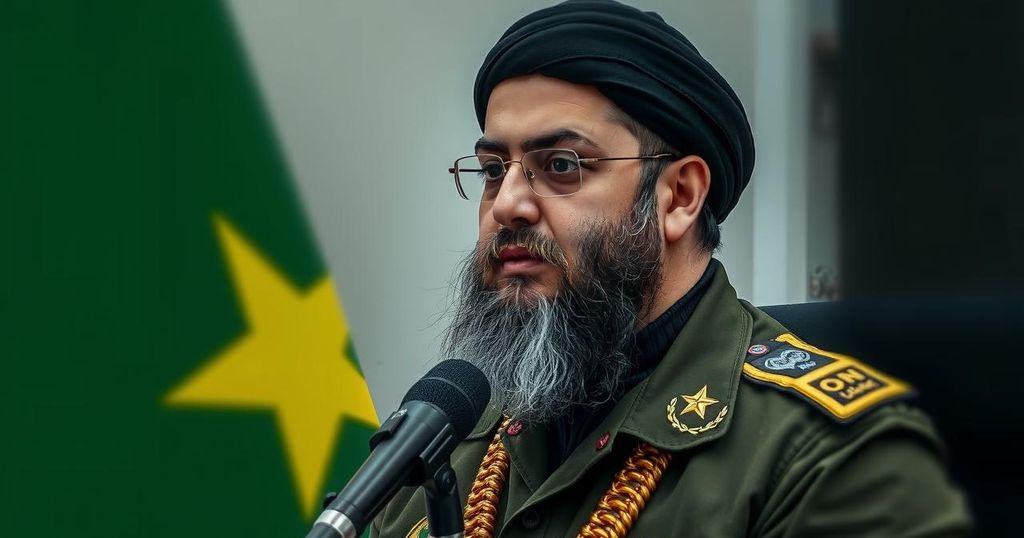Escalating Conflict: IDF Airstrikes in Gaza and Lebanon Amid Calls for Investigation

The Israel Defense Forces are conducting extensive airstrikes in Gaza and Lebanon, with significant military and humanitarian implications. The conflict has intensified with the death of Hezbollah’s media chief, Mohammed Afif, while Iran’s Supreme Leader met with their injured ambassador. Pope Francis has called for an investigation to assess if Israeli actions in Gaza constitute genocide, highlighting the urgent humanitarian crisis.
The ongoing conflict in the Middle East has escalated with the Israel Defense Forces (IDF) conducting extensive airstrikes in Gaza, particularly in its northern regions, as well as targeting locations across Lebanon, including the capital, Beirut. This military activity coincides with increased diplomatic efforts from the White House as it prepares for the return of President-elect Donald Trump in January. Tensions remain particularly high between Israel and Iran, following an Israeli offensive aimed at military sites within Iran in response to missile attacks originating from Tehran.
In recent developments, Iran’s Supreme Leader, Ayatollah Ali Khamenei, met with Mojtaba Amani, Iran’s ambassador to Lebanon, who is recuperating from injuries sustained during a strike against Hezbollah communication systems. During this encounter, Amani reported significant loss of vision in his right eye due to the Israeli military actions.
Tragically, Mohammed Afif, the media relations chief for Hezbollah, was killed in an Israeli airstrike in Beirut. The attack resulted in the partial collapse of a building and left three others injured, as confirmed by Lebanese health officials. The IDF recognized Afif’s long-standing role in Hezbollah since the 1980s, noting his significant influence over the organization’s military strategies, including a drone attack directed at Israeli Prime Minister Benjamin Netanyahu’s residence last October.
Furthermore, Pope Francis has called for an inquiry to investigate whether Israel’s military operations in Gaza amount to genocide. In a forthcoming publication, he highlighted the desperate circumstances in Gaza, emphasizing the catastrophic humanitarian crisis and the need to assess if the situation meets the legal definition of genocide as established by international law and expert analysis. These statements underscore the dire humanitarian implications and political complexities characteristic of the ongoing crisis in the region.
The Israel-Gaza conflict and its broader implications involving Hezbollah and Iran create a volatile geopolitical landscape in the Middle East. Historically, this region has been rife with tension characterized by a series of military confrontations, political alliances, and humanitarian crises. The recent increase in military actions by Israel, particularly following missile attacks from Iranian forces, indicates a sharp escalation in hostilities that not only affect the immediate regions but also draw international attention and responses, including from religious leaders such as the Pope.
In summary, the recent developments in the Israel-Gaza conflict reflect the prolonged and complex dynamics of military, political, and humanitarian issues in the region. The deaths of significant figures such as Hezbollah’s Mohammed Afif signal heightened military engagement, while calls for investigations into potential war crimes underscore the urgent need for international scrutiny and diplomatic resolution. As tensions mount, the situation remains critical, requiring careful attention from global leaders and organizations.
Original Source: www.goodmorningamerica.com








